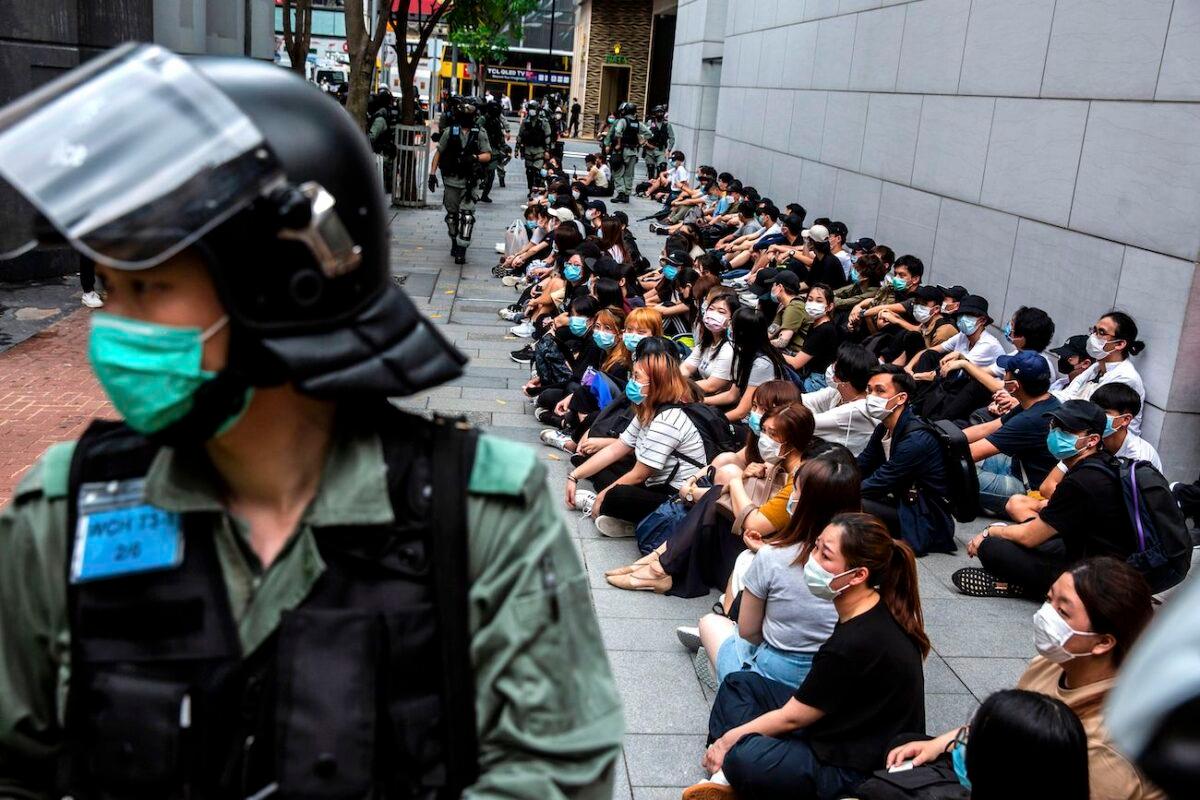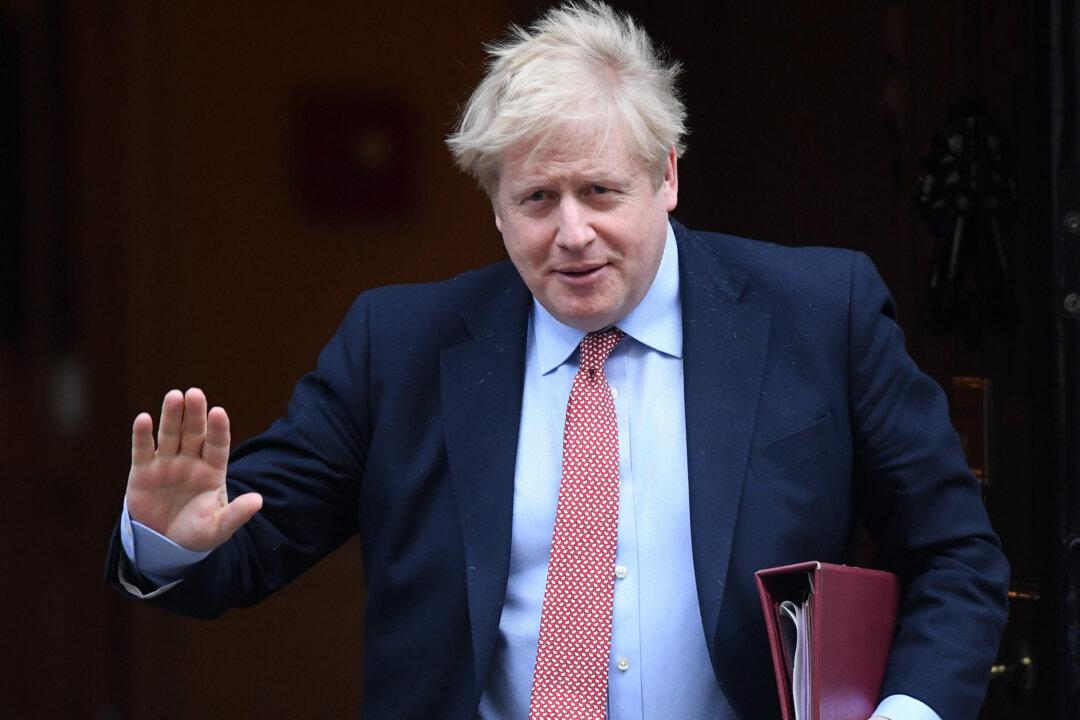LONDON/HONG KONG—Britain will not walk away from the people of Hong Kong if China imposes a national security law that would conflict with its international obligations under a 1984 accord, Prime Minister Boris Johnson said on Wednesday.
The United Kingdom has urged China to step back from the brink over the national security legislation for Hong Kong that it says risks destroying one of the jewels of Asia’s economy while ruining the reputation of China.

“Hong Kong succeeds because its people are free,” Johnson wrote in the Times of London newspaper. “If China proceeds, this would be in direct conflict with its obligations under the joint declaration, a legally binding treaty registered with the United Nations.
“Many people in Hong Kong fear that their way of life—which China pledged to uphold—is under threat,” Johnson said.
China’s rubber-stamp legislature approved last week a decision to create laws for Hong Kong to curb sedition, secession, terrorism, and foreign interference. Mainland security and intelligence agents may, for the first time, be stationed in the city.
“If China proceeds to justify their fears, then Britain could not in good conscience shrug our shoulders and walk away; instead we will honor our obligations and provide an alternative,” Johnson said.
Hong Kong was handed back to China in 1997 after more than 150 years of British rule—imposed after Britain defeated China in the First Opium War.
China said its decisions on national security in Hong Kong were its own affair.
“We advise the UK side to step back from the brink,” Chinese Foreign Ministry spokesman Zhao Lijian said.
Johnson repeated Britain’s pledge to give British National Overseas (BNO) passport-holders in Hong Kong a path to British citizenship, allowing them to settle in the United Kingdom.
There are about 350,000 holders of BNO passports in Hong Kong and another 2.5 million are eligible for them, Johnson said.
Hong Kong democracy activist Joshua Wong called on the United Kingdom to go further and impose sanctions on China.
“I call upon the UK government to impose necessary sanctions and restrictive measures,” Wong said.
Demonstrations are also planned for the June 9 anniversary of last year’s million-strong march against a now-withdrawn Hong Kong bill to allow for the extradition of Hongkongers to mainland China, as well as protests three days later that police tackled with tear gas and rubber bullets.





